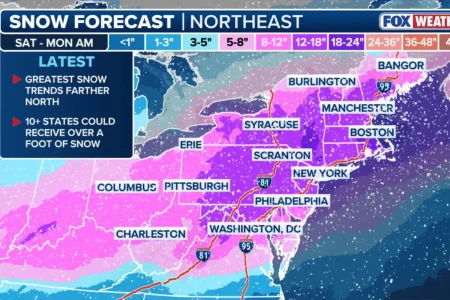Nations at a Crossroads: The Identity Crises of America and Britain
The United States and Great Britain find themselves at similar crossroads, each wrestling with profound questions about their national identity and purpose in a rapidly changing world. These two nations, once united by history before becoming separate countries with a “special relationship,” are now experiencing parallel struggles to define who they are and what they represent in the 21st century. Both face internal divisions that have grown increasingly bitter, with citizens holding dramatically different visions of what their country should be and where it should go.
In America, the divide manifests in competing narratives about the nation’s very essence. One vision celebrates America as an exceptional nation founded on noble principles of liberty and equality, a beacon to the world despite its acknowledged imperfections. The opposing view portrays America as fundamentally flawed from its inception, built on stolen land and slavery, with injustice woven into its fabric. These competing interpretations aren’t merely academic disagreements but reflect a deeper struggle over American identity itself. The divisions play out in heated battles over everything from immigration policy and voting rights to how history should be taught in schools. Political tribalism has intensified to the point where many Americans view their fellow citizens across the political divide not simply as wrong, but as existential threats to the nation they love.
Britain faces its own identity crisis, dramatically accelerated by the Brexit referendum of 2016 that revealed profound divisions throughout society. The vote forced painful questions about what it means to be British in the modern world, pitting cosmopolitan, globally-oriented citizens against those who felt their traditional British identity was being eroded by forces beyond their control. The aftermath has been a period of intense national soul-searching about Britain’s place in the world post-Empire and post-EU. Like America, Britain struggles with how to reconcile its celebrated historical achievements with growing acknowledgment of its colonial past and legacy of imperial exploitation. The monarchy, long a unifying symbol, finds itself navigating these complexities while facing questions about its continued relevance in contemporary society.
Both nations are experiencing these identity crises amid dramatic demographic and cultural transformations. Increasing diversity has enriched both societies but also triggered anxieties about change and belonging. In America, projections show the country becoming “majority-minority” within decades, while Britain has seen significant demographic shifts through immigration, particularly in urban centers. These changes have sparked fundamental questions about national identity – is being American or British primarily about shared values, shared history, shared culture, or something else entirely? The answers have profound implications for everything from immigration policy to social cohesion. Meanwhile, technological change and globalization have disrupted traditional industries and communities, leaving many feeling economically and culturally adrift, further complicating questions of national purpose and belonging.
The institutions that once helped forge consensus and shared identity in both nations appear increasingly fragile. Traditional media, once serving as common reference points for national conversation, have fragmented into echo chambers that reinforce division rather than bridging it. Social media has accelerated polarization while undermining faith in shared facts. Political institutions struggle with decreased public trust and increased partisanship. In Britain, Parliament and the civil service face questions about their effectiveness and legitimacy. In America, Congress suffers from historic disapproval ratings while the Supreme Court’s authority faces unprecedented challenges. Even national symbols and traditions – from the American flag to the British monarchy – have become politicized battlegrounds rather than unifying elements. Religious institutions, once central to national identity formation, play diminished roles in increasingly secular societies.
Despite these challenges, both nations possess remarkable resilience born from histories of adaptation and reinvention. America has weathered a civil war, economic depressions, and social upheavals while continuously expanding its definition of who belongs. Britain transformed from global empire to modern nation-state while maintaining democratic institutions through world wars and economic transformations. Both societies retain significant reservoirs of civic virtue, community spirit, and pragmatic problem-solving that may yet forge new, more inclusive national identities. The very intensity of today’s debates reflects something positive: citizens passionately engaged with fundamental questions about what their nations stand for and who they wish to become. Though painful, these identity crises may ultimately lead to renewed national purpose based not on myths of past perfection but on honest reckoning with history and shared commitment to creating more just and united societies. The challenge for both nations lies in finding ways to embrace change while maintaining continuity with the best of their traditions – crafting identities expansive enough to include all citizens while providing the stability and meaning that human communities require.






